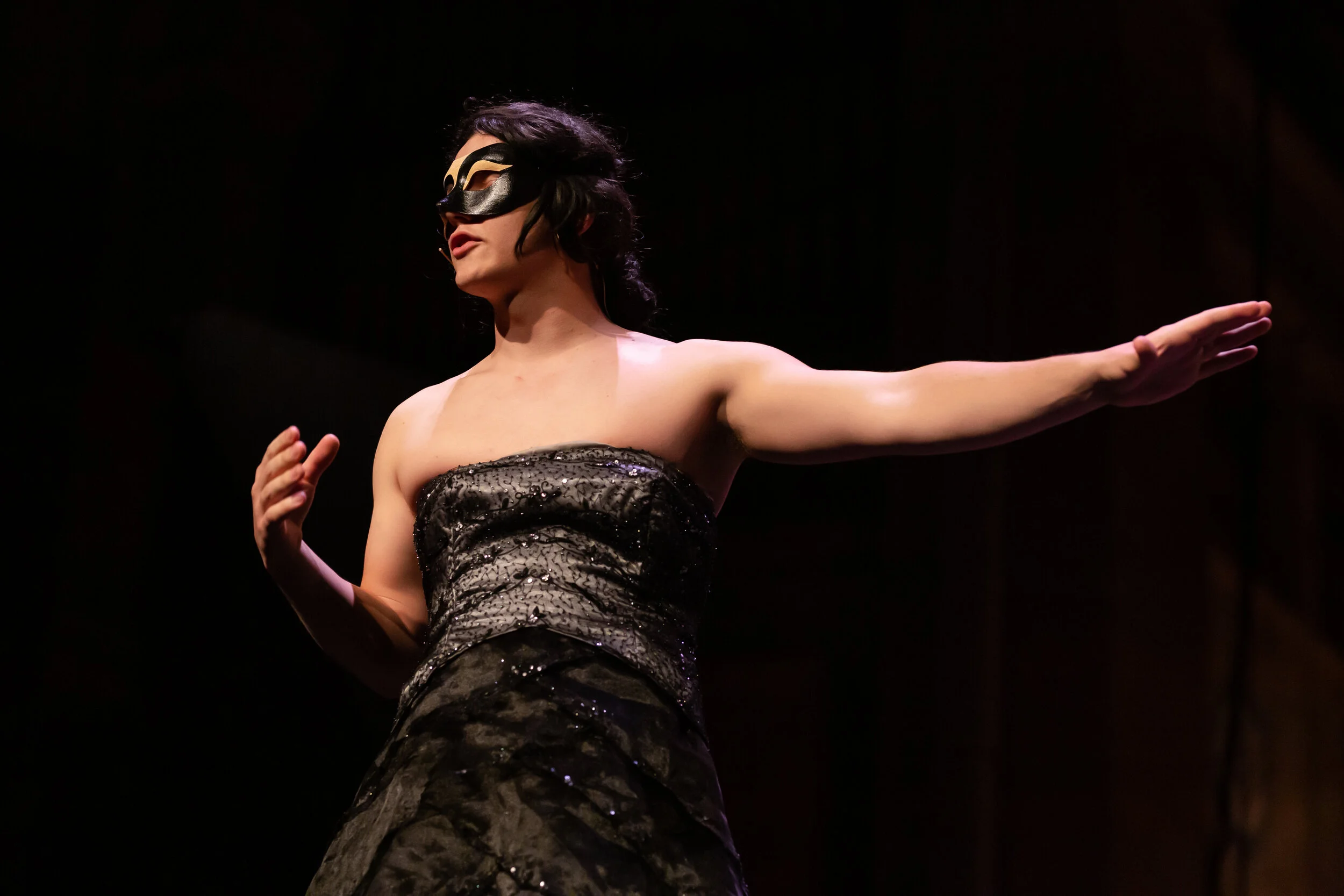
M A S Q U E R A D E
P R O C E S S
Masquerade premiered as the culmination of Spann’s Artist in Residency at Richardson Auditorium on April 6, 2019. Produced through the Princeton University Players in collaboration with the Lewis Center for the Arts, the musical served as Spann’s Junior Project in the Music Department at Princeton. Additional support was provided by the Program in Gender and Sexuality Studies and the Undergraduate Student Project Board.
Through the project, Spann endeavored to bring together artists working in all genres and disciplines across campus to find new ways of addressing questions of authenticity and vulnerability. A turning point in her artistic journey, Spann cherished this process for its connectivity, messiness, and boundless potential.
P L O T
In a time that is both the Victorian Era but also now, and a place that is both vaguely Europe but also here, Masquerade throws us into the world of a Baroness and her three daughters, mourning (to varying degrees) the recent loss of the Baron. Their New Year’s Eve masquerade ball will be the prime opportunity to secure suitable matches to accommodate their newly unprotected status as fatherless and husbandless women. Throughout their preparation for the evening, we meet the guests of the ball and learn their varied hidden motivations for attending. Each guest arrives wearing more than one mask, and each quickly learns what the cost is—and, in some cases, how difficult it can be to take them off.
R E S E A R C H
Spann presented her work at TEDx Princeton in the Fall of 2018.
Anthropological and psychological research surrounding masking served as the foundation of the work. Masquerade uses masks as a rhetoric device to explore how humanity has used physical and figurative masks as coping mechanisms throughout history. The plot serves as the mask, representing the thriving, idealistic exterior. Every other element points to what props it up. From the double-masking of the characters to the waltz music, rich with modern dissonance, Masquerade strives to evoke the Freudian “unheimlich:” making the familiar unfamiliar. As the characters act as who they think they know themselves to be, the audience moves through what they think they know to be a conventional musical. Unease greets both sets as it becomes apparent that accepting a different reality from the one that is expected is not always a night at the ball.
G A L L E R Y
photos by Bola Okoya and Jenny Kim












Original Production Team
Book/Music/Lyrics: Allison Spann
Director: Allison Spann
Stage Manager: Milan Eldridge
Assistant Stage Manager: Jacqueline Pothier
Music Director: Allison Spann
Assistant Music Director: Grace Zhao
Set Designer: Allison Spann
Lighting Designer: Hannah Semmelhack
Sound Designer: Minjae Kim
Choreographer: Allison Spann and Jhor van der Horst
Costume Designer: Allison Spann
Assistant Costume Designer: Joanna Zhang
Original Cast
Voice of Baron Nijinsky: Eli Berman
Body of Baron Nijinsky: Tori Edington
Baroness: Haydon John
Daughter, the Eldest: Kateryn McReynolds
Daughter, the Middle: Soojin Robinson
Daughter, the Youngest: Katie Massie
George Sand/Emmaline: Grace Huegel
Edward Wilmot Blyden: Chamari White-Mink
John: Noah Daniel
Gerald Roderick Lester Octavian Magnus George Ichibald Donald Kringeworth III: Fergus Binnie
Julian James Augustus Jonathan Atticus Jerome Alfred Jennings-Dudenham: David Timm
Servants: Tori Edington, Anson Jones, Leila Abou-Jaoude
